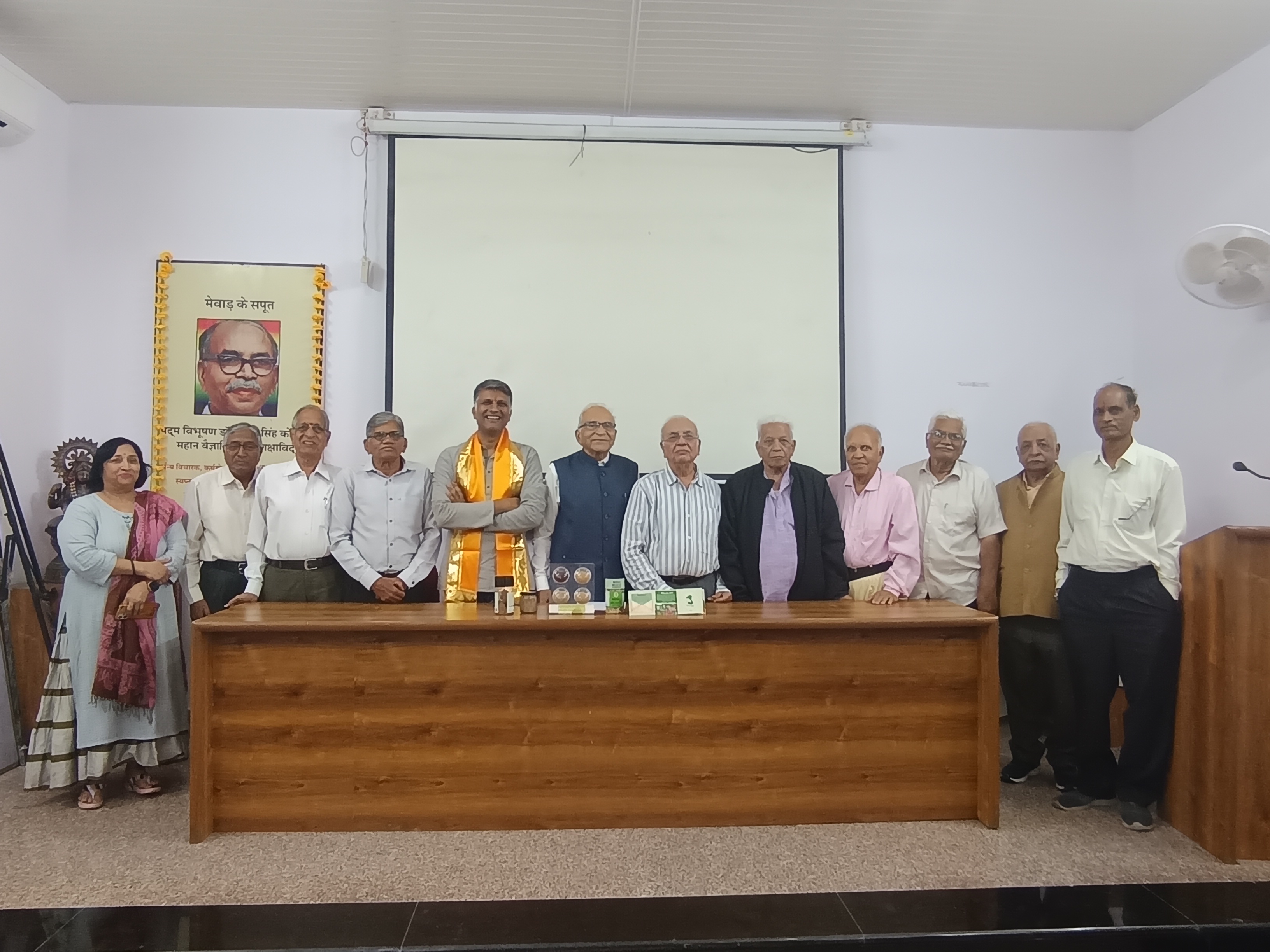
Udaipur:A thought-provoking talk on “Reviving Traditional Millets” was organised during the monthly meeting of the Prabuddha Chintan Prakoshth at the Vigyan Samiti campus, Udaipur. The session was addressed by Er. Rohit Jain, Director and Founder of Banyan Roots Organics, who shared valuable insights from his fifteen years of experience in organic farming and millet cultivation.
The discussion focused on the diversity, nutritional value, and conservation of millets (Shri Anna), particularly those grown in the Mewar region. Er. Jain highlighted that millets—often termed the “Miracle Grains”—require no chemical fertilizers, thrive with minimal water, and are highly beneficial for health. He explained that millets are gluten-free, rich in fibre, and packed with essential nutrients. While ragi is an excellent source of calcium, bajra is known for its high iron content. He also pointed out that Rajasthan ranks first in the country for millet production.
Speaking further, Er. Jain emphasized that minor millets such as kodra, kangni, and sama are rich sources of minerals. Referring to the growing concern of diabetes in India, he shared that regular millet consumption plays a significant role in controlling blood sugar levels. He added that the revival of these traditional grains will not only promote health and sustainability but also generate new avenues for rural employment.
His organisation, Banyan Roots Organics, in collaboration with the Vatvriksha Foundation, is presently working with nearly 500 farmers in the tribal regions of Udaipur and over 1,000 farmers across India to promote organic millet production and distribution.
Prof. Vimal Sharma, Media In-Charge of the Vigyan Samiti, informed that the Prabuddha Chintan Prakoshth regularly conducts such sessions on topics that integrate science, society, and culture to advance the path of sustainable development. He remarked that traditional grains like millets are symbols of agricultural self-reliance and play a vital role in preserving India’s dietary and health heritage. He further stated that such discussions serve as a source of inspiration for both youth and farmers.
During the meeting, Dr. K. L. Kothari presented valuable suggestions, while Dr. K. L. Totawat and Dr. Naresh Sharma shared their queries and received clarifications.
Dr. K. P. Talesra introduced the guest speaker, and the vote of thanks was proposed by Dr. R. K. Garg.
The session was effectively conducted by Mr. Munish Goyal, Convener of the Prabuddha Chintan Prakoshth.